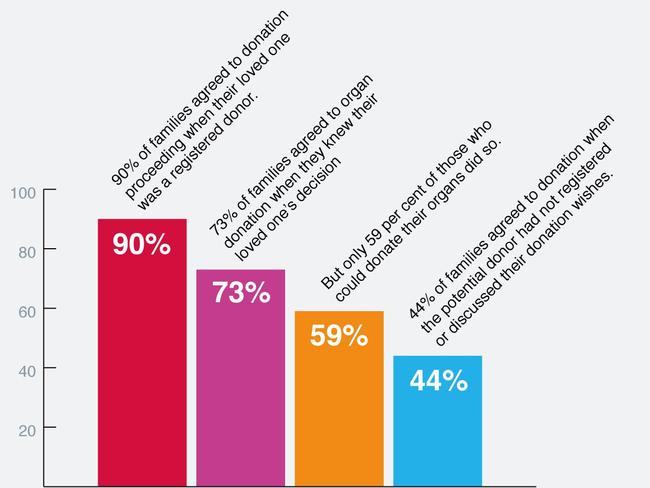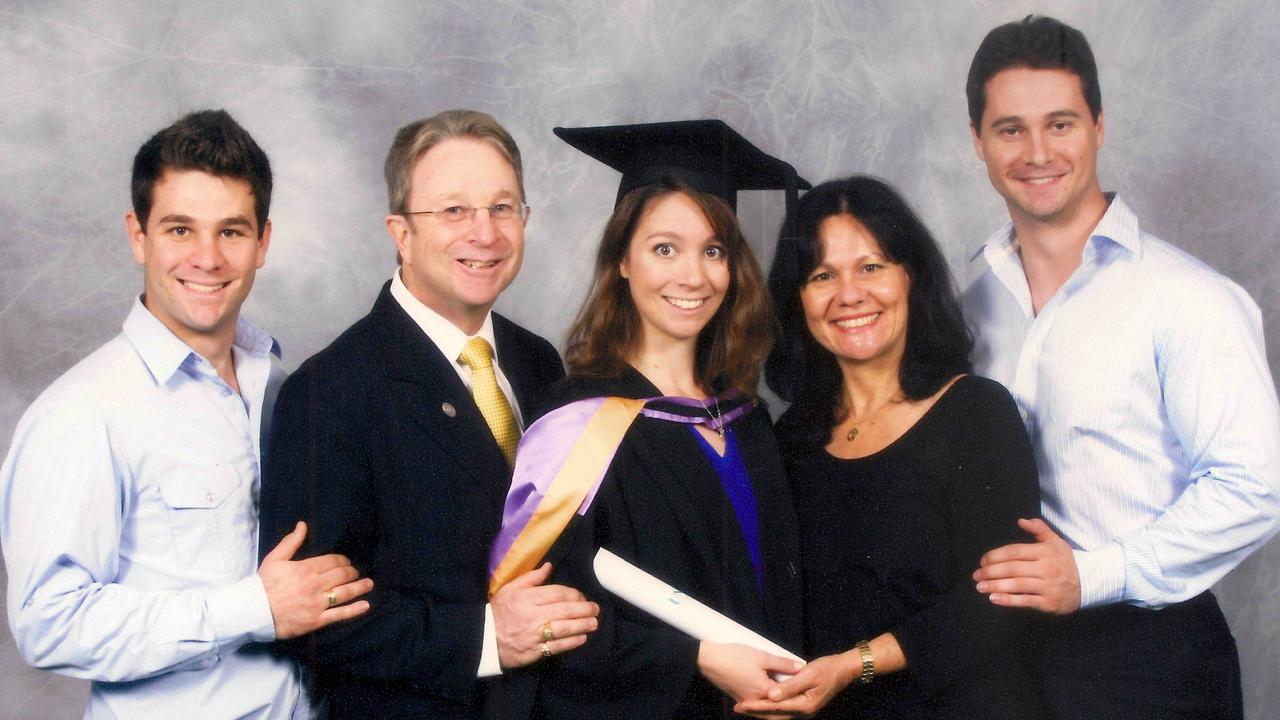Why this ‘quick fix’ is not a magic solution
This problem plagues thousands of Australians, and there seems to be a simple answer — until you consider the details.
AS THE news.com.au campaign for organ donation continues, there’s one argument that keeps being raised — why don’t we have an opt-out system?
As Travis and many others commented on Facebook: “just change it to an opt-out system already”.
While this may seem like a good idea, assuming everyone is willing to be a donor unless they say otherwise could do more harm than good.
Organ and Tissue Authority national medical director Dr Helen Opdam warned against seeing the opt-out system as a “magic solution”.
While other countries have introduced an opt-out transplant system, Dr Opdam pointed out that families still needed to give their consent for the donation to go ahead.
“The practice is still the same as in Australia, ultimately the family have to give the final OK,” Dr Opdam said.
“If families have to make a decision and they don’t know what their loved one wanted, half of them say no,” she said.
Dr Opdam said this highlighted one of the most important factors in successful organ donations: that families know how their loved ones feel about it.
Australia’s government-funded Organ and Tissue Donation has chosen instead to focus on the importance of registration and informing family members.
“Organ donation is an altruistic gift and not everyone likes the idea of a law or health professional deciding,” Dr Opdam said. “Then it’s not a gift anymore.”
She said in some countries where the opt-out model had been adopted, such as Brazil, there had been a backlash against the system.
“The community lost a lot of trust in the government and health professions and didn’t proceed with donations,” she said.
Dr Opdam said the opt-out system was often seen as a “magic solution” by people who didn’t understand how the donation system worked.
“There needs to be an appreciation that there’s no magic quick fix to increase organ donors,” she said.
REGISTER: To become a registered organ donor, click here

She said having properly resourced hospital systems with well-trained clinicians to support families to make the best decision, the community’s positivity towards organ donation and a willingness to donate, were the things that were effective in improving organ donation rates.
Ever since the Federal Government overhauled Australia’s system in 2009 to improve the system, introduce a register and provide funding for public awareness, more than twice as many people have donated their organs.
“It’s been extraordinary,” Dr Opdam said.
For Rob and Karin Kinny, knowing how their 22-year-old son Nathan felt about organ donation made their decision so much easier.
Nathan, who died when he was hit by a van while riding his motorbike in 2013, had signed up to be a donor via the old driver's licence system and had told his family about it.
“He didn’t just do it on a whim, he did it thoughtfully and told us and his girlfriend, at the time,” Mr Kinny told news.com.au.
“So when they asked us the question it just made it so much easier for us and our family because we knew what he wanted and we were able to say ‘yes’.
“For us to go against that would have been wrong.”

Many people think they are too old or not healthy enough to donate their organs but that’s often not true.
“Don’t rule yourself out,” Dr Opdam said. “If you die in circumstances where donation is possible — the suitability of what can be donated will be determined then.”
The important thing is to register on the Australian Organ Donor Register.
Only 30 per cent of Australians have registered despite 75 per cent of those surveyed in 2015 by Woolcott Research, saying they would accept an organ transplant.
Some Australians may also think they registered via the old driver’s licence system but their details may not have been transferred across to the register depending on which state they live in.




